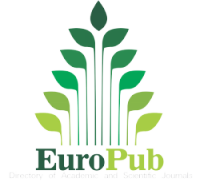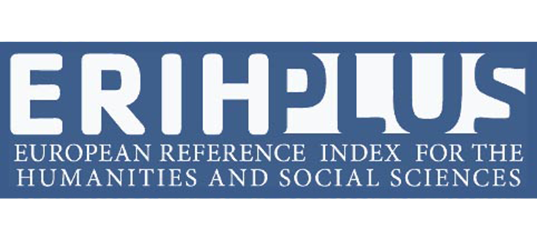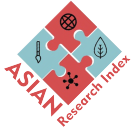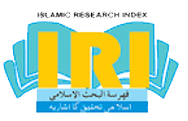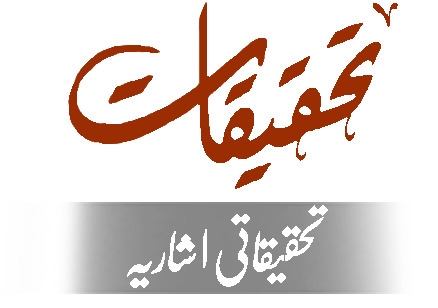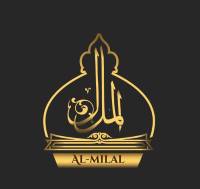Submissions
Submission Preparation Checklist
As part of the submission process, authors are required to check off their submission's compliance with all of the following items, and submissions may be returned to authors that do not adhere to these guidelines.- The submission has not been previously published, nor is it before another journal for consideration (or an explanation has been provided in Comments to the Editor).
- The submission file must be in Microsoft Word format.
- Where available, URLs for the references have been provided.
- The text is 1.5 spaced; uses a 12-point font; (Times New Roman (12) for English, Jameel Noori Nastaleeq (14) for Urdu, and Traditional Arabic (16) for Arabic), rather than underlining (except with URL addresses); and all illustrations, figures, and tables are placed within the text at the appropriate points, rather than at the end.
- The text adheres to the stylistic and bibliographic requirements outlined in the Author Guidelines.
Author Guidelines
Al-Milal feels honor in providing a platform to the research scholars by publishing original material of interest. It is an academic refereed journal published two times a year (summer and winter). Voluntary manuscripts will be welcomed here.
Submission Charges
There are no submission charges.
APC (Article Processing Charges)/ Publication fee
There are no APC (Article processing charges) or other publication charges that need to be paid by the authors at the time of publication.
Open Access Journal
Al-Milal is an open access journal that allows readers to read, download, copy, distribute, print, search and gives them access to links to the full texts of its articles and to use them for any other lawful purpose. All current/previous issues and complete articles can be viewed / downloaded from current issue/ previous issues section.
Manuscript Submission
Submit two copies of the manuscript along with a soft copy via CD/Email to the Editor. Manuscripts should not be submitted via Fax. To facilitate academic review and production, authors must provide their complete name, address, phone number(s), current position/title, and name(s) of universities on the title page. Manuscripts will be considered for publication only if they have not been published previously and are not under consideration for publication elsewhere.
Review Process
Al-Milal strictly follows double blind peer review process for the publication of all research articles. The submitted manuscripts would be sent for evaluation by at least two independent referees, who are expert in the applicable field. The decision to accept or reject a manuscript rests solely with Al-Milal Editorial Board. This decision is final. The Editorial Board will, however, base its decision primarily upon the recommendations of the referees who have evaluated the paper. For details kindly refer to Ethical guidelines.
Copyright Policy
The authors retain copyright under the CC BY NC license. However, authors have to sign a form agreeing to the publication of their article under the CC BY license.
Antiplagiarism policy
Al-Milal only accepts original and strictly follow, anti-plagiarism policy of Higher Education Commission, Islamabad - Pakistan. The similarity index should not increase from 18%. Moreover, an anti-plagiarism preform will be singed from author(s) and all liability of its originality will lay down on author(s).
Format Requirements
General Requirements: The Manuscripts must be written in English/Urdu/Arabic. Type the manuscript on white bond paper, 8-1/2×11 inches (21.6×27 cm or A4 size paper) with margins of at least 1.5 inches (4cm) on left for English and on right for Urdu/Arabic.
Begin each of the following section on separate page and in the following order:
Title page
Abstract
Introduction
Discussion
Results, Recommendations & References.
Number pages consecutively, beginning with the title page. Type the page number in the upper right-hand corner of each page in English, and in the upper left-hand corner of each page in Urdu and Arabic.
- Title: Title of the Article should be very clear and easy to understand with reference to the manuscript of the study.
- Abstract: Provide on a separate page an abstract of 150 to 200 words followed by the keywords for respective article. This abstract should consist of categorized background, methods, results and conclusion. It should briefly describe, respectively, the problem being addressed in the study, how the study was performed, the salient result and what the authors conclude from the results.
- Introduction: State the purpose of the article and summarize the rationale for the study.
- Key Words: Include the Key Words relating to the article subject.
- Results: Present your results in logical sequence in the text.
- Discussion: Emphasize the new and important aspects of the study and conclusions that follow from them. Link the conclusions with the goals of the study but avoid unqualified statements and conclusions not completely supported by your discussion and references.
- Conclusion: Conclusion should be presented in a clear and logical sequence rather than a summary.
- Recommendations: The article should also include comprehensive recommendations at the end of study for further academic study /solution of the issue.
- Bibliography: Mention complete Bibliography of Arabic and Urdu Papers in Roman English at the end of the Paper while for English paper in English language.
Example:
Dihlvī, Abdu al-Ḥaq. Madāriju al-Nubuwāt. Sakhar: Maktabah Nủriyyah, 1977.
Muir, Sir William. Muhammad and Islam. London: Darf Publishers Ltd., 1986.
Al-Qushaiyrī, Muslim bin al-Hajjāj Abū al-Ḥassan. Ṣaḥīḥ Muslim. Riyādh: Dārussalām, 2008.
Ya‘qūb Ibn Ibrāhīm al-Anṣārī, Abū Yūsuf. Kitāb al-Kharāj. Cairo: Al-Maktabah al-Azhariah, 1990.
Saeed, Riaz Ahmad, Saeed ur Rehman and Rauf Ahmad. “Pakistānī Jāmi’āt mayṇ Sāmī Mazāhib (M.Phil & PhD) ka ‘Ishāriya wa Shumāryātī Jā’izah,”. Al-Milal: Mujallah Braey Adyān wa Afkār. 2; 1(2020). : 25-79.
Heikal, Muhammad Husain, Umar Fārūq ‘Āzam (Trans. Habib ‘Ash’ar). Lahore: Maktbah Jadīd, 2019.
-
Transliteration: For transliteration of non-English words, research journal Al-Milal adopts the style of Islamic Studies.
- Paper Compilation: Your paper should be compiled in the following order: Title Page with authors’ details , Abstract with keywords , Introduction to the study , Research Methodology , Literature Review, Discussion and Analysis ,Conclusion, Recommendation, Declaration of interest statement, References; Appendices (as appropriate), Table(s) with caption(s) (on individual pages); Figures; figure captions (as a list).
- References: Text and references must follow the format outlined in the Chicago 16th Manual Style. They should be made according to the following guidelines:
- (i) References should be made as Footnotes.
- (ii) While giving references, Chicago 16th Manual Style should be adopted.
Ibn Kathīr, ‘Imād Al-Dīn Ab ū al-Fidā Ismā‘īl bin ‘Umar, Tafsīr Al-Qur’ān al-‘Aẓīm (Beirut: Dār al-Ṣādir, 1354 A.H.), 2:312.
- (i) For similar references at multiple locations, traditional style of abbreviations may be used.
Qureshi, The Messenger of God and the Law of Blasphemy in Islam, 89.
- (iii) Qur’ānic Ᾱyāt, Biblical verses and Ᾱhādīth also will be mentioned in inverted commas.
The Method of revealed books citation would be as below:
Al-Qur’ān 2:184
Genesis 5:6,
Mathew 3:15
- (iv) All Ᾱḥādīth should be briefly interpreted and they also should be authentic.
Example for this format is as under:
Muḥammad b. Ismā‘īl al-Bukhārī, al-jāmi‘ al-Ṣaḥīḥ (Lahore: Dār as-Salām, 2005), 2:13.
- (v) Research paper’s article will be cited as: Jacques Warrdensburg, “Religious Pluralism and Citizenship,” The Encounters 4 no.1(1998):126.
- (vi) Published books will be cited as mentioned below: Michael, H. Hart, The 100: A Ranking of the Most Influential Persons in History (New York: Kensington Publishing Corporation, 1992), 3.
- (vii) All Quotations shorter than three lines should be in inverted commas as:
“All praises to Almighty Allah the Most Merciful the Most Beneficent”
- (viii) Website references will be cited as below:
"Influence of Western Civilization on Islam," http://westernizationandislam.weebly.com, accessed on 27 June, 2018.
- (ix) Online published books or papers will be cited as under:
Alī Marzūī, “Islamic and Western Values”, Foreign Affairs 76, no. 5 (1997):
118-132; https://www.foreignaffairs.com/articles/1997-09-01, accessed on 27 June, 2018.
- (x) Reports will be cited as below: United Nation’s General Assembly Report on Freedom of Assembly and Association, (Washington: Human Rights Council, 2012), 5, www.ohchr.org/Documents/HRBodies/A-HRC-20-27, accessed on 27 June, 2018.
- (xi) Theses references will be given below:
Riaz Ahmad Saeed, "Freedom of Expression in Islamic and Contemporary Western Thought: A Comparative Study" (doctorate thesis, University of the Punjab, Lahore, 2017), 118.
- (xii) All personalities, terms and places mentioned in the article must be briefly introduced and references from books should also be quoted in footnote of the paper.
- (xiii) Interview will be cited as below:
John Smith, Interview by author, Tape recording. New York City, March 5, 2019.
- All un-known personalities, terms and places mentioned in the article must be briefly introduced and references from books should also be quoted in the footnote section of the paper.
- The journal has right to amend, transliterate and format miner things according to his editorial need and requirement without changing major theme of the
- (xv) Al-Milal believe on freedom of expression with its moral and legal responsibilities. All thoughts are expressed in the study are liability of the author(s) and journal is not responsible of it. However, hat speech, religious, social and racial discrimination are not allowed.
COPE Guidelines
We follow COPE
- Guidelines for managing the relationships between society owned journals, their society, and publishers
- Principles of Transparency and Best Practice in Scholarly Publishing
- Journals’ Best Practices for ensuring consent for publishing medical case reports: guidance from COPE
- Sharing of information among editors-in-chief regarding possible misconduct
- Text recycling guidelines for editors
- A short guide to ethical editing for new editors
- Guidance for Editors: research, audit and service evaluations
- Ethical guidelines for peer reviewers (English)
- Cooperation between research institutions and journals on research integrity cases: guidance COPE
- Guidelines for the Board of Directors of Learned Society Journals
- How to handle authorship disputes: a guide for new researchers
- Retraction guidelines
Ethical Guidelines for the Author(s)
These guidelines are retrieved from Higher Education Commission (HEC), Pakistan manual for “Ethical Guidelines for Journals”, which has been prepared by Dr. Rukhsana Kausar, Director Institute of Applied and Clinical Psychology, University of the Punjab, Lahore”
The following ethical guidelines are obligatory for all author(s) violation of which may result in application of penalties by the editor, including but not limited to the suspension or revocation of publishing privileges.
Reporting Standards
- It is the author(s)' responsibility to ensure that the research report and data contain adequate detail and references to the sources of information in order to allow others to reproduce the results.
- Fraudulent or knowingly inaccurate statements constitute unethical behavior and are unacceptable.
Originality and Plagiarism
- It is the author(s)' responsibility to ascertain that s/he has submitted an entirely original work, giving due credit, by virtue of proper citations, to the works and/or words of others where they have been used.
- Plagiarism in all its forms constitutes unethical publishing behavior and is not acceptable.
- Material quoted verbatim from the author(s)' previously published work or other sources must be placed in quotation marks.
- As per HEC’s policy, in case the manuscript has a similarity index of more than 19%, it will either be rejected or left at the discretion of the Editorial Board for the purposes of a conditional acceptance.
Declaration
- Authors are required to provide an undertaking / declaration stating that the manuscript under consideration contains solely their original work that is not under consideration for publishing in any other journal in any form.
- Authors may submit a manuscript previously published in abstracted form, for e.g. in the proceedings of an annual meeting, or in a periodical with limited circulation and availability such as reports by the Government agencies or a University.
- A manuscript that is co-authored must be accompanied by an undertaking explicitly stating that each author has contributed substantially towards the preparation of the manuscript in order to claim right to authorship.
- It is the responsibility of the corresponding author that s/he has ensured that all those who have substantially contributed in the manuscripts have been included in the author list and they have agreed to the order of authorship.
Multiple, Redundant and Current Publication
- Authors should not submit manuscripts describing essentially the same research to more than one journal or publication except if is a re-submission of a rejected or withdrawn manuscript.
- Authors may re-publish previously conducted research that has been substantially altered or corrected using more meticulous analysis or by adding more data.
- The authors and editor must agree to the secondary publication, which must cite the primary references and reflect the same data and interpretation of the primary document.
- Concurrent submission of the same manuscript to more than one journal is unethical publishing behavior and is unacceptable.
Acknowledgment of Sources
- A paper must always contain proper acknowledgment of the work of others, including clear indications of the sources of all information quoted or offered, except what is common knowledge.
- The author(s) must also acknowledge the contributions of people, organizations and institutes who assisted the process of research, including those who provided technical help, writing assistance or financial funding (in the acknowledgement).
- It is duty of the author(s) to conduct a literature review and properly cite the original publications that describe closely related work.
Authorship Credit
- Authorship of the work may only be credited to those who have made a noteworthy contribution in conceptualization, design, conducting, data analysis and writing up of the manuscript.
- It is the responsibility of the corresponding author to include the name(s) of only those co- authors who have made significant contributions to the work.
- The corresponding author should ensure that all co- authors have seen and approved the final version of the paper and have agreed to its submission for publication. Others who have participated in certain substantive aspect of the research should be acknowledged for their contribution in an "Acknowledgement" section.
Privacy of Participants
- Authors must respect the privacy of the participant of research and must not use any information obtained from them without their informed consent.
- Authors should ensure that only information that improves understanding of the study is shared.
- Authors must ensure that in instances where the identity of the participant needs to be revealed in the study, explicit and informed consent of the concerned party is obtained.
- In the case of the demise of a participant, consent must be obtained from the family of the deceased.
Data Access and Retention
- If any question arises about the accuracy or validity of the research work during the review process, the author(s) should provide raw data to the Editor.
Images
- The author(s) should ensure that images included in an account of research performed or in the data collection as part of the research are free from manipulation,
- The author(s) must provide an accurate description of how the images were generated and produced.
Disclosure and Conflicts of Interest
- The potential and relevant competing financial, personal, social or other interest of all author(s) that might be affected by publication of the results contained in the manuscript must be conveyed to the editor.
- The author(s) should disclose any potential conflict of interest at the earliest possible stage, including but not limited to employment, consultancies, honoraria, patent applications/registrations, grants or other funding.
- All sources of financial support for the project should be disclosed alongside a brief overview of the role played, if any by the responses during various stages of the research.
Copyright
Authors may have to sign an agreement allowing the journal to reserve the right to circulate the article and all other derivative works such as translations.
Manuscript Acceptance and Rejection
- The review period can last between 1-2 months or longer and during this period the author(s) reserve the right to contact the Editor to ask about status of the review.
- Once the review process has been completed, the author will be informed about the status of the manuscript which could either be an acceptance, rejection or revisions. In the case of rejection, the author(s) reserves the right to publish the article elsewhere.
- In case of revisions, the author(s) must provide an exposition of all corrections made in the manuscript and the revised manuscript should, then, go through the process of affirmation of revisions and be accepted or rejected accordingly.
- In case of dissatisfaction over the decision of rejection, the author can appeal the decision by contacting the Editor.
Privacy Statement
The names and email addresses entered in this journal site will be used exclusively for the stated purposes of this journal and will not be made available for any other purpose or to any other party.
Al-Milal: Journal of Religion and Thought by Almilal Foundation is licensed under a Creative Commons Attribution-NonCommercial 4.0 International License.



